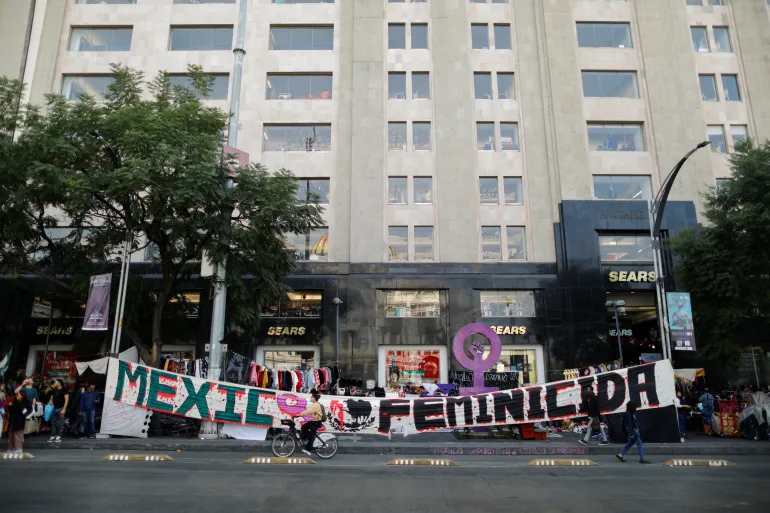A horrifying femicide captured live on TikTok has once again thrust Mexico’s ongoing gender violence crisis into the global spotlight. In the latest episode of The Take podcast, Al Jazeera explores the brutal killing of a woman in real time on the platform, a tragic symbol of the impunity, fear, and trauma that continue to define daily life for millions of Mexican women.
The murder, streamed before a shocked online audience, underscores both the pervasiveness of femicide in Mexico and the disturbing role that social media now plays in documenting — and sometimes amplifying — real-time violence. While the suspect was later apprehended, the case has reignited national fury over the failure of institutions to prevent violence against women.
“This is not just a murder. This is a public execution of a woman, seen by thousands, in a country where this happens every day,” said Al Jazeera’s Maria Elena Romero, one of the episode’s hosts.
🇲🇽 A Crisis of Femicide and Injustice
On average, 10 women are murdered every day in Mexico, many by partners or relatives, and few of these crimes lead to arrests or convictions. Despite years of promises from successive governments, activists say little has improved, and victims’ families often lead investigations themselves.
The podcast episode explores systemic police failures, cultural machismo, and an overwhelmed justice system that often blames victims rather than protects them. The victim in this case, whose name has not been officially released, had reportedly sought help from authorities before her death — but was ignored.
“There were red flags. She asked for protection and got none,” said a family member featured in the episode.
📱 When Violence Goes Viral
The use of TikTok as a platform where a femicide was broadcast live adds a disturbing new dimension. Experts interviewed on the podcast say social media is becoming both a tool of exposure and trauma, allowing audiences to witness horror in real time — while offering no means to intervene.
Psychologists warn that such viral violence can desensitize viewers, retraumatize victims’ communities, and shift focus from justice to spectacle.
“People watched, shared, commented. But did they help? Did the system help?” asks one women’s rights advocate featured in the episode.
🧠 Why Justice Is Rare
The Take also examines how Mexico’s justice system enables this cycle of violence:
- Only 3% of reported femicides lead to convictions
- Victim-blaming and police corruption are widespread
- Emergency calls from women are often ignored or dismissed
- Gender violence units are underfunded and overworked
These failures fuel a culture of impunity, where abusers are rarely held accountable, and survivors are discouraged from seeking help.
🔥 Feminist Resistance
In response to the latest killing, feminist groups across Mexico have organized protests in Mexico City, Guadalajara, and Monterrey, demanding urgent reforms, federal accountability, and better protection for at-risk women.
Their message is clear: Mexico is in a femicide emergency, and the government must act.
“We don’t want to go viral when we die. We want to live,” said one protestor, holding a sign at a vigil.
What to Watch
- Possible legislative action to regulate live-streamed violence
- Protests demanding reforms to gender violence enforcement
- Growing role of social media in documenting — or exploiting — abuse
- Continued public pressure on President Andrés Manuel López Obrador
- Whether justice is achieved in this specific case — or lost like so many others
As The Take makes painfully clear, this was not an isolated incident, but part of a pattern of normalized violence, broken institutions, and ignored cries for help. And unless urgent action is taken, more women will die — some on camera, others in silence.
Source; Al Jazeera



